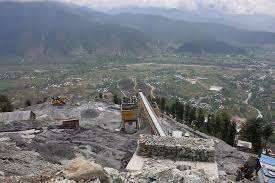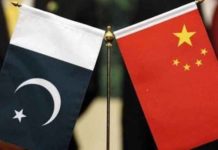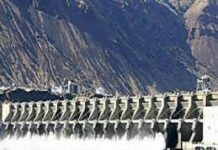By Muhammad Luqman
A four-member Pakistan delegation, headed by Attorney General Ashtar Ausaf, has reached the US capital, Washington to hold talks with World Bank authorities over India’s repeated violations of Indus Waters Treaty.
The delegation will apprise the World Bank chief of Pakistan’s reservations over the issue and request the global financial institution to play its role as a guarantor, according to English newspaper, Daily Dawn.
Pakistan officials will hold discussions with the World Bank authorities over Kishenganga and Ratle and other 12 controversial projects undertaken by New Delhi in disputed Kashmir region.
“Pakistan intends to consult with the World Bank over the Kishenganga Dam issue,” , Pakistan’s ambassador to the United States , Aizaz Chaudhary said.
The ambassador said that the country intends to take up plans of Indus Waters Treaty (alternatively known as the Sindh Taas Agreement), Kishanganga Dam, and Ratle hydroelectric plant with Jim Yong Kim, the president of the global financial institution.
Indian Prime Minister Narendra Modi had inaugurated the controversial Kishenganga Dam project on Saturday amid protests from Islamabad, which says the project on a river flowing into Pakistan will disrupt water supplies to the downstream Neelum Jhelum Hydro Power project in Azad Jammu and Kashmir.
The 330MW Kishenganga hydropower station, work on which started in 2009, is one of the projects that India has fast-tracked in the occupied territory, amid frosty ties between the nuclear-armed neighbours.
Pakistan has opposed some of these projects saying they violate a World Bank-brokered treaty on the sharing of the Indus River and its tributaries, upon which 80 percent of its irrigated agriculture depends.
“Pakistan is seriously concerned about the inauguration (of the Kishenganga plant),” the Pakistani foreign ministry said in a statement on Friday. “Pakistan believes that the inauguration of the project without the resolution of the dispute is tantamount to violation of the Indus Waters Treaty (IWT)”.
India has said the hydropower projects under construction in occupied Jammu and Kashmir are “run-of-the-river” schemes that use the river’s flow and elevation to generate electricity rather than large reservoirs, and do not contravene the treaty.















